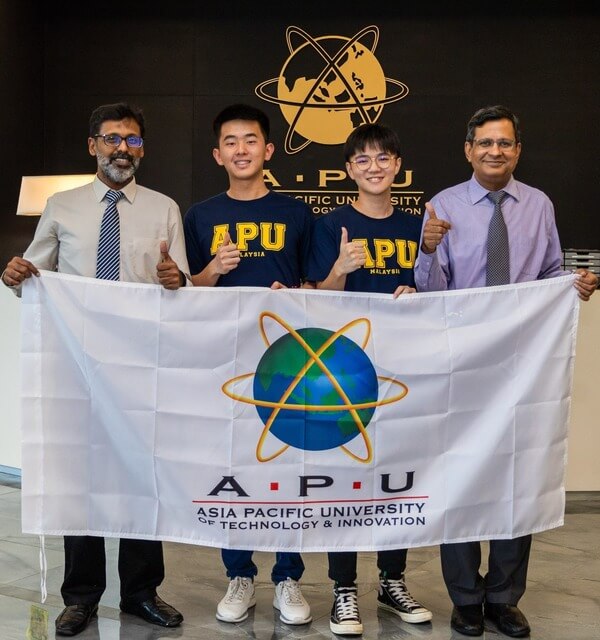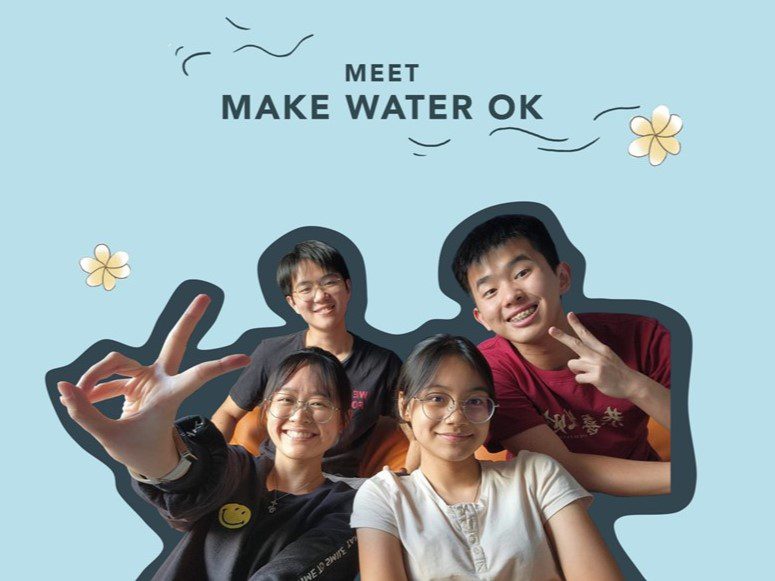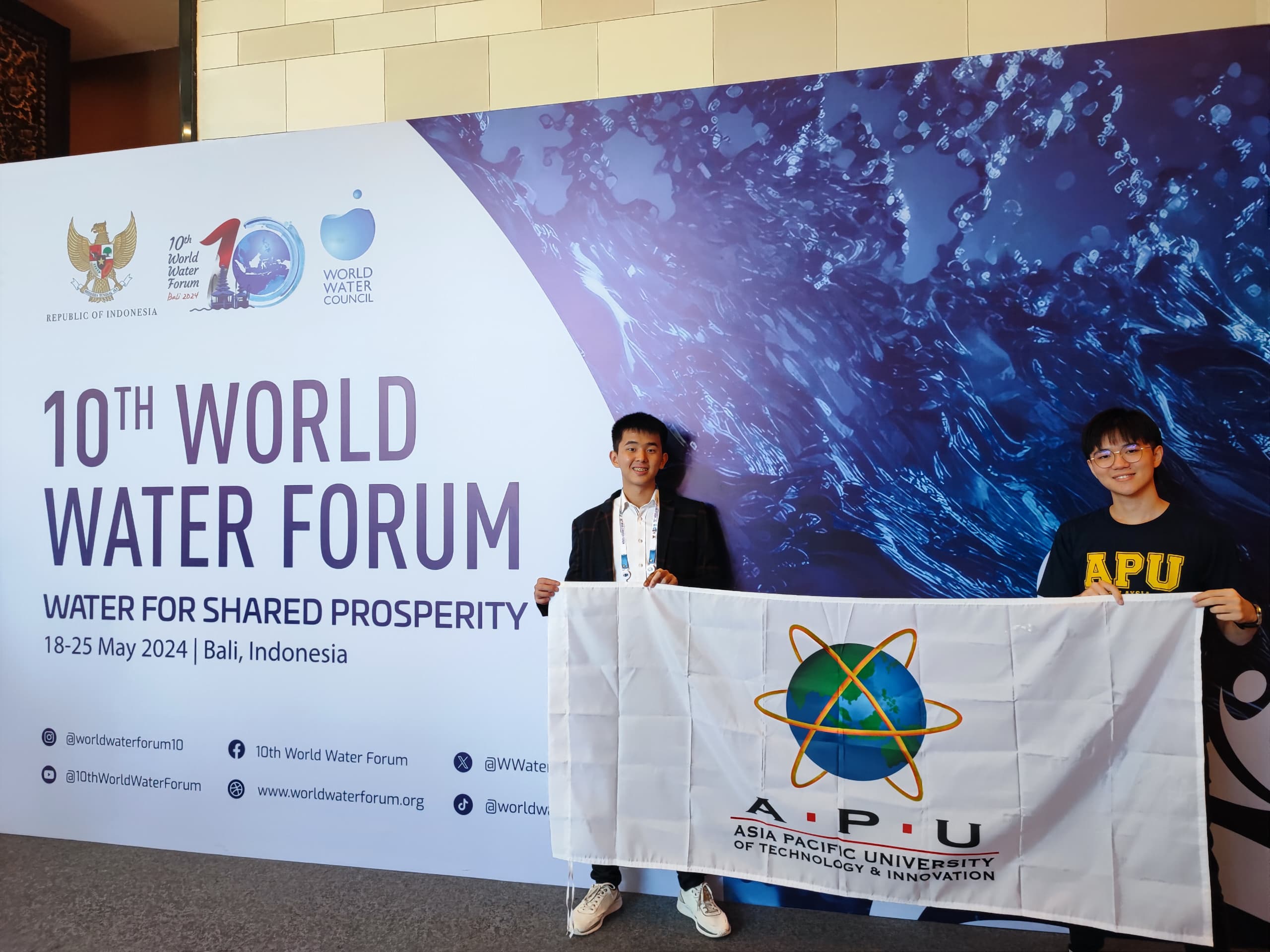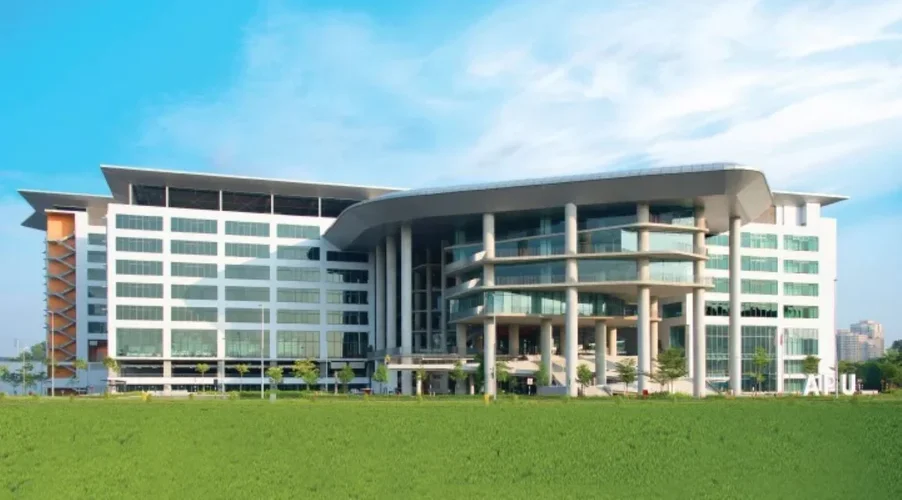
Tan Peng Teck, a Bachelor of Computer Science (Hons) Intelligent Systems student, and Lim Heng Hoe, a Master of Science in Artificial Intelligence student, formed “Make Water OK” to represent Asia Pacific University of Technology & Innovation (APU). They have emerged victorious at the UNESCO Water Resilience Challenge 2024, co-hosted by UNESCO (United Nations Educational, Scientific and Cultural Organisation) and The Water Agency.
This was announced at the 10th World Water Forum, mid May 2024.

Under the guidance of Dr Vazeerudeen Hameed, Senior Lecturer, School of Computing at APU, and Assoc Prof Dr Muhammad Ehsan Rana, Associate Professor, School of Computing at APU, the Make Water OK team focused on addressing recurrent landslides and water scarcity issues in the UNESCO Penang Hill Biosphere Reserve (PHBR).
The teams’ project aimed to enhance data clarity for effective landslide risk management and provide actionable information to optimise water resource management.
Key stakeholders such as the PHBR Office, the Penang Water Supply Corporation, and the PHBR Landslide Rehabilitation Team were primary beneficiaries, benefiting from improved environmental management strategies.
Other Key Contributors and Mentors facilitating the Project
-
Ocean Hope (an outreach programme initiated by UMT): Provided crucial supporting funds that facilitated the team’s participation and activities.
-
Marine Biology experts from UMT: Provided invaluable guidance and insights into natural disaster management, significantly enhancing the team’s understanding of disaster preparedness and response strategies.
-
Dr Abe Woo Sau Pinn from Universiti Sains Malaysia: Provided crucial consulting advice during the initial competition stage and introduced the team to a key stakeholder from PHBR.
-
Dr Yang Kok Lee, Senior Project Officer at the PHBR Office: Facilitated essential site visits and stakeholder engagement activities, including nature walks and meetings with various teams, significantly contributing to the refinement of the team project.
A Journey of Innovation and Dedication
The five-month competition featured rigorous criteria across multiple levels, with the Make Water OK team emerging from over 150 teams across Southeast Asia in stage one to earn a spot among the 25 selected for their innovative solution.
Advancing to stage two, they distinguished themselves as one of seven winning teams, including being one of only two from Malaysia, marking a significant achievement in their journey towards recognition in the water resilience challenge.
In stage three, competing against 100 participants from nine Southeast Asian countries, the team showcased the impact of “Youth Action” on water resilience, securing victory and highlighting the project’s relevance in regional water management efforts.
Objectives of the Project
The project's objectives are to provide detailed and reliable safety information for the landslide rehabilitation team; Secondly, the project aims to generate informative visualisations utilising water usage data from Penang Hill; Thirdly, it seeks to develop a robust data platform that supports structured data for landslide hazard assessment and water usage.
An Innovative Solution
This comprehensive platform integrates two pivotal components, the Landslide Risk Assessment System, which utilises advanced modelling techniques to predict and mitigate landslide risks, and the Smart Water Meter System, designed to optimise water resource management through real-time monitoring and data analysis.
Together, these systems bolster the authorities’ environmental management capabilities, ensuring proactive measures and sustainable practices for Penang Hill’s ecosystem.
The Landslide Risk Assessment System: The Landslide Risk Assessment System on Penang Hill utilises advanced fuzzy logic algorithms to transform raw field inspection data into actionable insights, vastly improving decision-making processes.
- Previously reliant on manual methods prone to inefficiencies like document loss and delayed analysis, HydroDataHub digitises the entire process.
- Authorities now input risk parameters directly via mobile devices during site visits, streamlining data collection.
- Automated risk calculations seamlessly integrate with a Geographic Information System (GIS), enabling faster, more accurate assessments.
- Results are instantly mapped and shared across departments, boosting operational efficiency and minimising errors.
- This integration accelerates response times and enhances comprehensive landslide risk management across Penang Hill.
The Smart Water Meter System: The Smart Water Meter System addresses water resource management challenges on Penang Hill by utilising advanced data analytics to transform raw usage data into clear, intuitive graphical representations.
- These visualisations offer a comprehensive overview of water distribution and usage patterns, enabling authorities to make informed decisions in real time.
- By providing insights into usage patterns and optimising resource allocation, the system minimises wastage and enhances overall efficiency in water management practices.
- This technological innovation promotes sustainable water usage practices and reinforces the resilience of Penang Hill’s water infrastructure, ensuring it meets current and future demands effectively.
Recognition at the 10th World Water Forum

Their victory was acknowledged with high acclaim by the Director, as well as the Deputy Director, of the Department of Irrigation and Drainage, Malaysia, highlighting the significance of their achievement in advancing water resilience solutions on a global stage.
Attended by participants from politics, academia, civil society, and the private sector, the World Water Forum is the largest international event in the water sector, held every three years since 1997.
The forum is more than just a conference; it includes a three-year preparatory phase, a one-week event phase, and a synthesis phase where results are presented and continuous support for collective action is provided.
APU’s Commitment to Excellence in Environmental Innovation
APU consistently demonstrates its commitment to excellence in environmental innovation by empowering students through initiatives guided by dedicated mentors and facilitated by collaborative partnerships, enabling them to tackle complex challenges with creativity and ingenuity.
This commitment not only enriches educational experiences but also contributes significantly to global sustainability efforts, showcasing APU’s effort in nurturing students dedicated to environmental stewardship and innovation.
 +60142521561
+60142521561






